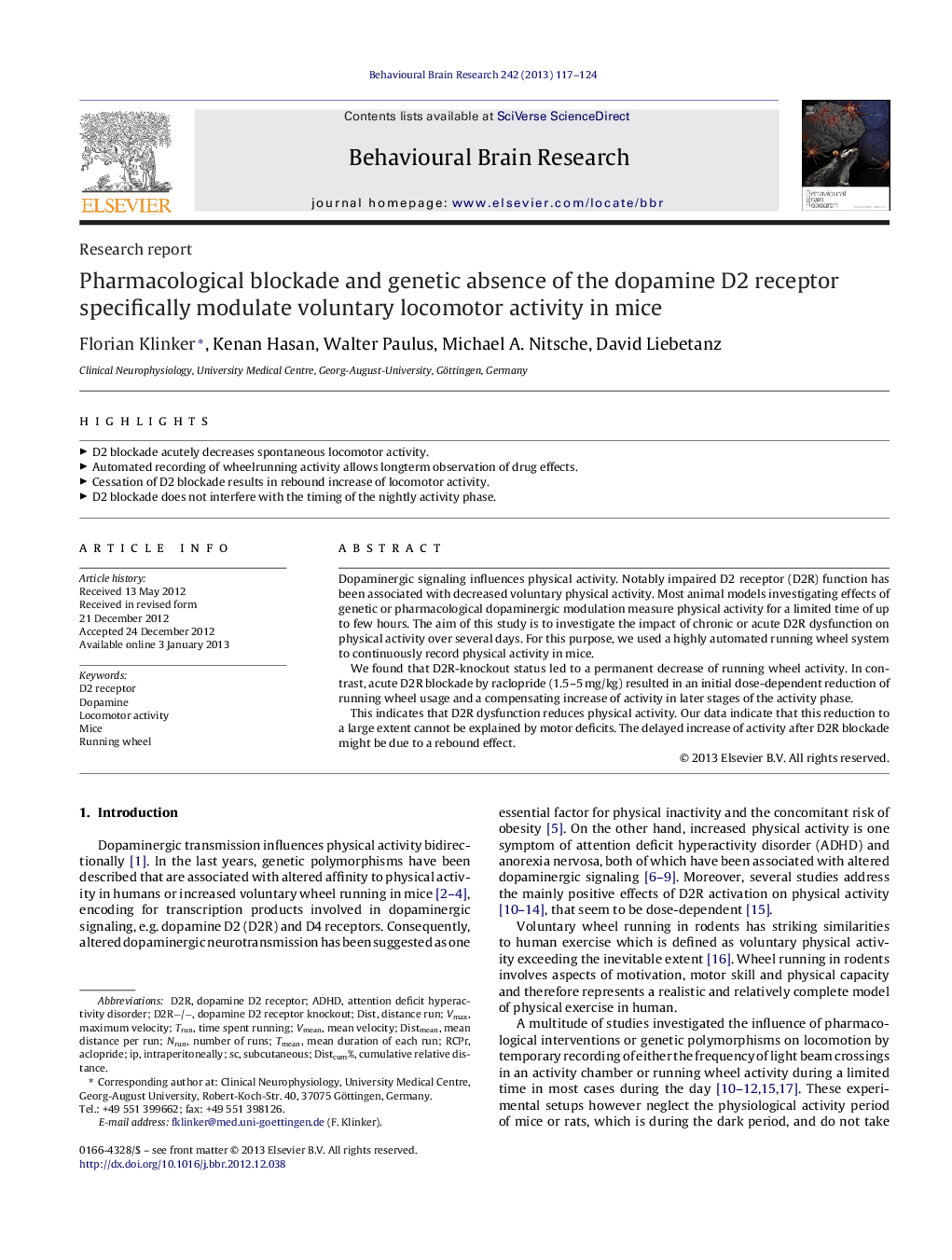| Article ID | Journal | Published Year | Pages | File Type |
|---|---|---|---|---|
| 4312810 | Behavioural Brain Research | 2013 | 8 Pages |
Dopaminergic signaling influences physical activity. Notably impaired D2 receptor (D2R) function has been associated with decreased voluntary physical activity. Most animal models investigating effects of genetic or pharmacological dopaminergic modulation measure physical activity for a limited time of up to few hours. The aim of this study is to investigate the impact of chronic or acute D2R dysfunction on physical activity over several days. For this purpose, we used a highly automated running wheel system to continuously record physical activity in mice.We found that D2R-knockout status led to a permanent decrease of running wheel activity. In contrast, acute D2R blockade by raclopride (1.5–5 mg/kg) resulted in an initial dose-dependent reduction of running wheel usage and a compensating increase of activity in later stages of the activity phase.This indicates that D2R dysfunction reduces physical activity. Our data indicate that this reduction to a large extent cannot be explained by motor deficits. The delayed increase of activity after D2R blockade might be due to a rebound effect.
► D2 blockade acutely decreases spontaneous locomotor activity. ► Automated recording of wheelrunning activity allows longterm observation of drug effects. ► Cessation of D2 blockade results in rebound increase of locomotor activity. ► D2 blockade does not interfere with the timing of the nightly activity phase.
